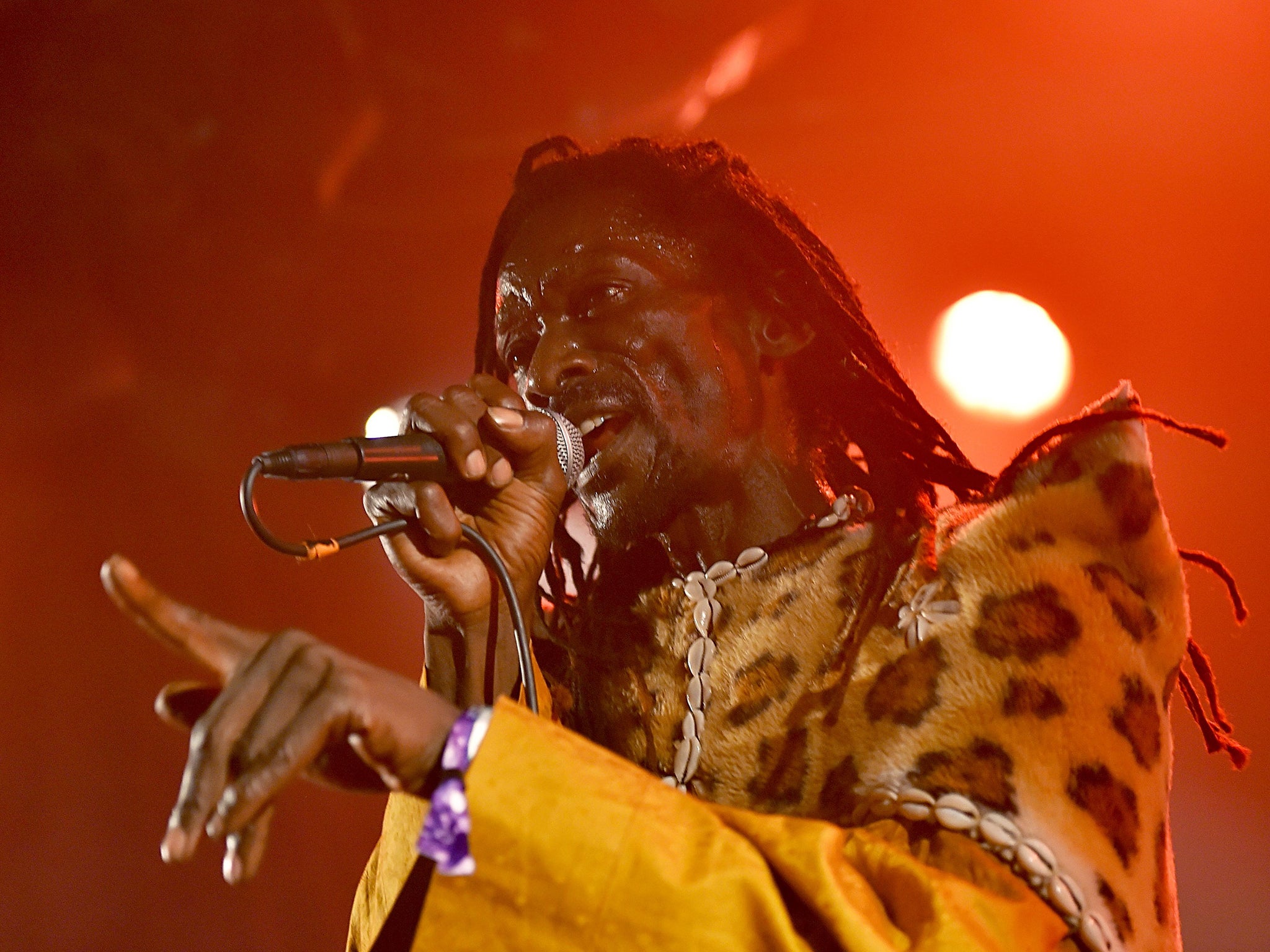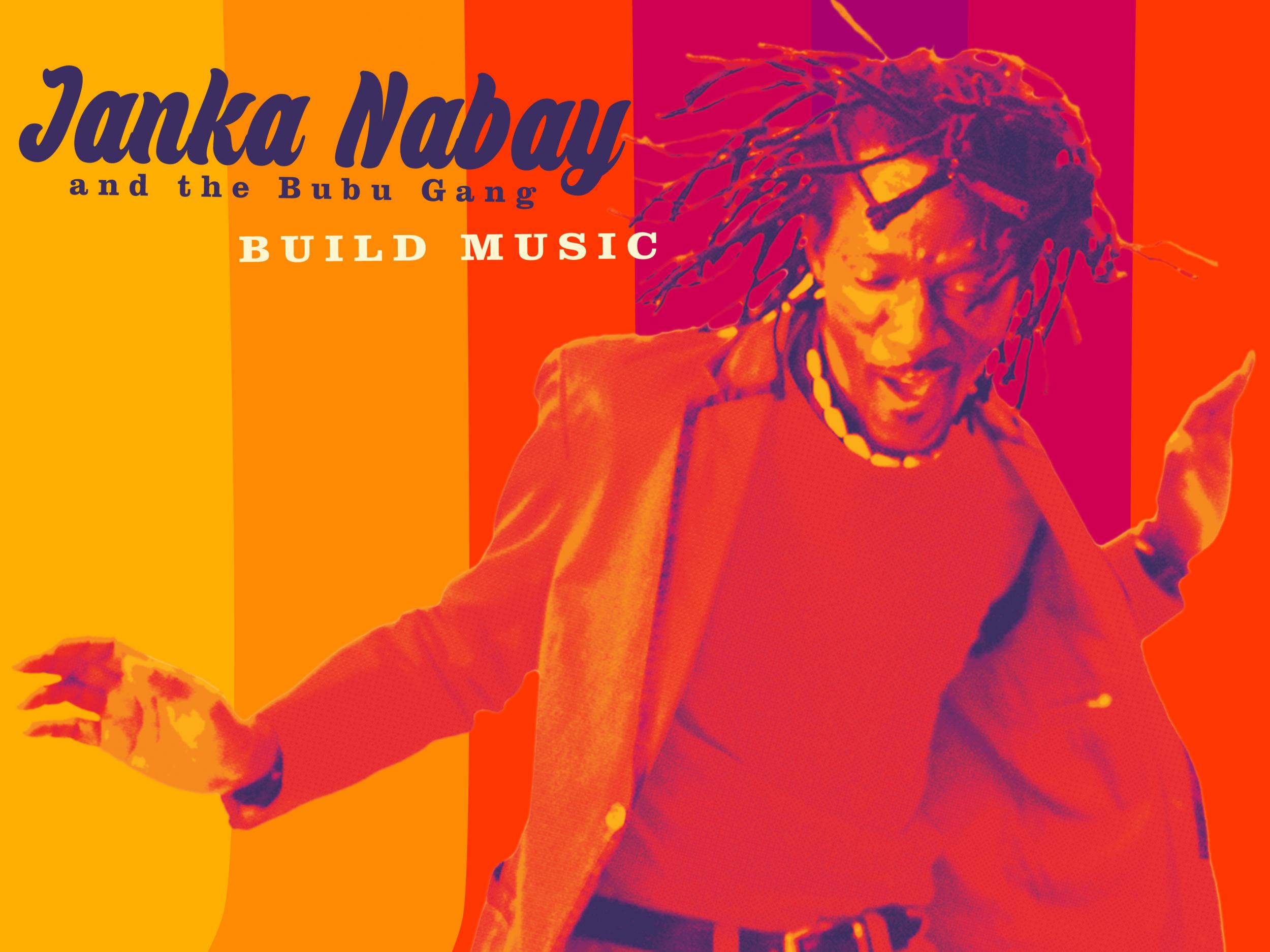Janka Nabay: Musician who brought Sierra Leone’s bubu style to the world
He fled to the US after the civil war ended in 2002 but had to do odd jobs to make a living before an Afrobeats label picked him up – then he was refused a green card

Janka Nabay, who has died aged 54, was a Sierra Leonean musician who put bubu, the traditional music of his homeland, on the world map.
Bubu is played on bamboo flutes, sometimes imitated by metal pipes – updated by Nabay on the keyboard.
He was born Ahmed Janka Nabay in the village of Sedu, in Sierra Leone’s Eastern Province. His father was a diamond miner and fish seller of Mandingo and Temne heritage. Nabay was the fourth of five children.
As a child, Nabay was a keen fan of Michael Jackson and Bob Marley. During his teenage years, the family moved to the capital Freetown and he began to write his own music, combining Marley’s reggae style with lyrics in Arabic expressing his own nascent political beliefs.
However, the songs for which Nabay will be remembered drew on the bubu which Nabay first heard as a child visiting his grandmother in Masimo in the north of the country.

The pre-Islamic music, associated with the Temne people and traditionally played on high days and holidays, combines voice, drums and a kind of bamboo horn that plays only one note. Several horns, each with a different note, are play together in sequence to form a tune.
In the 1990s, Nabay brought the bubu sound up to date with an electronic spin. The lyrics of his song “Dance to the Bubu” proclaimed: “It’s an ancient style of music, but when you try it you never leave it.”
He was surely on to something.
His modern, eminently danceable take on the traditional style won him his first taste of fame on SuperSound, a televised talent competition. He went on to record six albums in Sierra Leone, singing in Temne, English, Arabic and the Sierra Leonean official language, Krio – a Creole language based on English.
The country’s political turmoil was a big inspiration for his work and in a country riven by civil war until 2002, his message was one of peace, inclusivity and sexual equality.
Yet his words were horribly twisted for political gain. According to The New York Times, rebel troops changed Nabay’s peaceful lyrics to suit their own aims and actually played his songs on portable stereos to draw civilians out of their homes to be attacked.
Nabay was drawn further into the conflict when he and his 11-strong band were kidnapped mid-tour by rebel general, Sam “General Mosquito” Bockarie.
They were held for 17 days, during which time they were forced to perform for the rebel soldiers.
Nabay told The Village Voice that on the 17th day he approached the general and asked to be allowed to leave. The general agreed and marked the moment by shooting his pistol in the air, before announcing to his troops that “Nobody gets any boats until Janka Nabay and the Bubu Gang can get back to Freetown!”
Shaken by what had happened and in fear for his life, Nabay left Sierra Leone soon afterwards.
He headed for the United States where he was granted an artist visa and settled on the East Coast. Unable to find work as a musician, he supported himself by working in fast-food restaurants and washing garbage trucks, while occasionally playing to fellow Sierra Leonean immigrants. In 2007, however, Nabay’s luck changed for the better when radio producer Wills Glasspiegel heard his music while researching an episode for Afropop Worldwide.
Encouraged by Glasspiegel, Nabay formed a Brooklyn-based band, The Bubu Gang, with several indie-rock musicians including Boshra Al Saadi, Syrian-born singer and former frontwoman of Looker. The Bubu Gang’s EP, Bubu King, was the first bubu record to get a commercial release in the United States. The band subsequently became a popular fixture at festivals up and down the country and went on to record two LPs for David Byrne’s Luaka Bop label, En Yay Sah (I’m Scared) in 2012 and Build Music in 2017.
On the release of Build Music, Nabay said: “I hope that people will concentrate on my music. I want to hear somebody in London play bubu music, somebody in Germany play bubu music. Somebody in South Africa, Nigeria, something like that. That’s my hope.”
Further explaining the album’s title, he said, “In Sierra Leone, we played borrowed music – reggae, hip hop, R&B – nothing is ours. I tried to build our trend. That’s why I pick the name, Build Music.”
Nabay took his bubu music on tour to Europe for the first time in 2017. However, at the end of the tour, he was prevented from re-entering the US, having finally been refused a green card. He returned instead to Freetown, where he lived with his wife Kadiatu.
A spokesman for Luaka Bop said Nabay died from a stomach illness that had not been diagnosed
Nabay is survived by his wife and three children from a previous relationship, Sia Precious Kemoh, Zachariah Osman Nabay and Ahmed Nabay.
Ahmed Janka Nabay, musician, born 5 January 1964, died 2 April 2018
Join our commenting forum
Join thought-provoking conversations, follow other Independent readers and see their replies
Comments
Bookmark popover
Removed from bookmarks